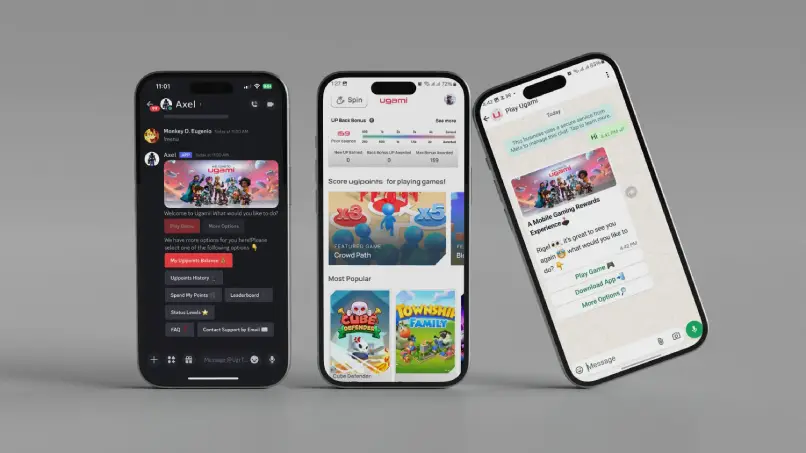Why Play-to-Earn Incentives Are Altering the Way You Play and Gain
The introduction of play-to-earn designs signifies a significant change in the gaming landscape, welcoming gamers to discover not just the enjoyment worth of video games yet also their prospective as income-generating systems. Comprehending these characteristics elevates relevant questions regarding the future of video gaming and the effects for both players and developers alike.
Introduction of Play-to-Earn Versions
Over the last few years, the video gaming market has observed a significant change with the appearance of play-to-earn models, essentially altering how players involve with digital environments. This cutting-edge technique allows gamers to obtain substantial benefits through their in-game activities, creating a change from typical video gaming paradigms where enjoyment and competition were the key inspirations.
Play-to-earn designs take advantage of blockchain technology and non-fungible tokens (NFTs) to provide gamers with possession of in-game possessions, which can be traded or offered for real-world currency. Because of this, gamers are incentivized to spend effort and time into games, fostering a feeling of agency and financial possibility. play to earn rewards. This change has attracted a varied gamer base, consisting of those who might have previously seen gaming as a purely entertainment activity
A number of platforms have actually arised, showcasing successful executions of this design, such as Axie Infinity and Decentraland. These platforms have not just generated significant profits but additionally sparked conversations around the sustainability and principles of such financial systems. As play-to-earn designs continue to progress, they guarantee to redefine the partnership in between players, designers, and the broader electronic economy, leading the method for a new period in video gaming.
Advantages for Gamers
As players engage with play-to-earn designs, they open a range of benefits that prolong past plain amusement. Unlike conventional video gaming, where gamers spend time and money without concrete returns, play-to-earn systems allow players to earn copyright or in-game assets that can be converted to real-world worth.
Additionally, play-to-earn models promote neighborhood building amongst players. Gamers usually work together to accomplish shared objectives, thus growing social connections that enrich the overall experience. This sense of neighborhood can cause cooperative gameplay, where players share strategies and sources, boosting both individual and group achievements.
Furthermore, these models can democratize access to gaming by permitting gamers from diverse financial histories to benefit financially. By joining play-to-earn communities, individuals can obtain skills and knowledge about blockchain modern technology, additional expanding their profession opportunities in the burgeoning electronic economy. Inevitably, the advantages for players prolong well beyond gameplay, affecting their social, economic, and educational landscapes favorably.
Obstacles in the Ecological Community
While the play-to-earn ecological community presents considerable possibilities, it is not without its difficulties. Variations in value can hinder potential gamers who seek steady revenue streams.
One more difficulty is the risk of rip-offs and illegal plans that can torment the environment. Gamers might experience deceitful systems promising high incentives but eventually causing monetary loss. Guaranteeing trust fund and our website protection is essential for the lasting viability of play-to-earn models.
Additionally, the ecological influence of blockchain pc gaming can not be overlooked. The energy consumption associated with mining and deal processing increases moral inquiries concerning sustainability. Video game programmers must find a balance in between rewarding players and minimizing ecological footprints.
Lastly, the regulatory landscape is still developing, positioning prospective threats for programmers and gamers alike. Uncertain lawful frameworks can click for info hinder advancement and restrict the growth of play-to-earn environments. Resolving these challenges is necessary for understanding the complete capacity of this transformative video gaming standard.
The Function of Blockchain Innovation
Blockchain technology functions as the foundation of the play-to-earn environment, resolving a number of the difficulties previously outlined. By making use of decentralized journals, blockchain makes sure transparency and security in deals. Players can with confidence make and trade in-game assets, recognizing that possession is verifiable and exempt to control.

Tokenization of properties plays a critical duty, providing visit the site players true possession of their in-game things, which can be gotten, sold, or traded on numerous markets. This motivates a vibrant secondary market, where gamers can monetize their skills and time bought the video game.
Furthermore, blockchain technology allows interoperability in between different games and systems, allowing gamers to lug their possessions throughout various communities. This adaptability not only improves user experience however also promotes an extra inclusive pc gaming atmosphere, inevitably reshaping the landscape of video gaming and earning.
Future Patterns in Pc Gaming
The video gaming industry gets on the brink of a transformative advancement, driven by emerging technologies and moving gamer assumptions. As play-to-earn models gain grip, gamers are significantly seeking immersive experiences that blend amusement with concrete rewards. This change is triggering developers to introduce, concentrating on developing interesting gameplay that cultivates community and communication.
One remarkable fad is the combination of online fact (VIRTUAL REALITY) and increased truth (AR), boosting the video gaming experience by giving much deeper immersion and interactive environments. Additionally, advancements in expert system are allowing a lot more advanced non-player characters (NPCs) and adaptive gameplay, tailoring experiences to individual gamer choices.

Conclusion
In verdict, the play-to-earn model is considerably transforming the pc gaming landscape by allowing players to derive real-world value from their in-game tasks. This paradigm change not just improves player engagement and financial investment yet additionally raises obstacles that should be addressed to make certain sustainability within the ecosystem. As blockchain modern technology proceeds to help with possession of electronic assets, the future of gaming assures additional advancement and opportunities for gamers across varied backgrounds.